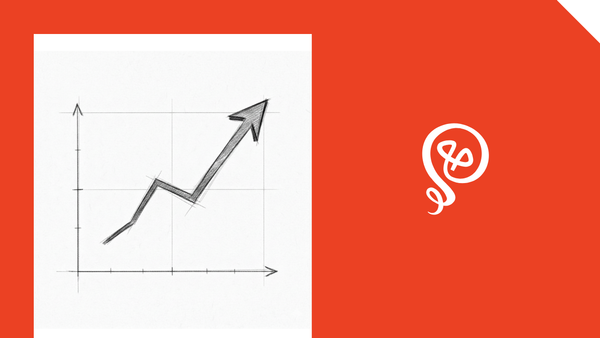Business Mindset for Solopreneurs: Trust Your Decisions
Decision-making is an essential part of running a business.

Like many people, I've spent money on courses and templates for my business over the years. These things often teach me something tactical — but they don't teach mindset.
Some entrepreneurs turn to coaches to help them develop a business mindset. Coaches are certainly an option, but they might not be in your budget, results aren't guaranteed, and there are a lot of bad coaches out there.
I have a business mindset, but it didn't come from a course or a coach: it came from spending 15 years at a tech company before I started my own business. Part of that time was spent on the executive team. That experience taught me what I needed to know.
And it boils down to one thing: as a business owner, I have to trust my decision-making ability. And, as a result, I have to trust that things will work out because of my decision-making.
If you can adopt this mindset, you'll have more confidence and clarity as you navigate the ins and outs of running your business.
The risks are real (and necessary)
Running a business is about taking calculated risks.
I saw this firsthand when I was part of an executive team. The team would try to make the best decisions possible for the company, but they didn't always pan out. There were times when I wished the company would take a risk, to move the company forward, but the CEO liked to play it safe.
As a business owner, I get to make those decisions. How aggressive do I want to be with my decision-making?
Everyone's tolerance for risk is different. Even with the most conservative decision-making, you won't always get it right. And a lot of things are outside of your control.
- Clients will ghost
- Your income will fluctuate
- You'll launch a product, and it will flop
Through all of these things, you have to keep moving forward. It's part of the deal of running a business. Setbacks don't mean you're "doing it wrong" — you're just doing business, like any business.
Decision-making is part of those risks, but NOT making a decision is an even bigger risk.
Comparison is the thief of everything
It’s easy to scroll and feel inadequate compared to what other people are doing in their businesses.
"She’s fully booked.”
“He made $20K this month.”
“They landed a dream client.”
But public posts only tell a fraction of the story. Wins come with struggles. You don't know the full context. And people flat-out lie on the internet to make themselves look more successful than they really are.
For example, I have three kids. I cannot achieve the same things as someone without kids, because I don't have the same bandwidth. In addition to running a business, my days include making lunches, picking my kids up from activities, and countless other tasks.
You can't look to other people's business decision-making as a guide, because THEIR business is not YOUR business.
Instead of measuring yourself against someone else's highlight reel, focus on your progress. Think about your decision-making. Do you feel like you're making good decisions for your business? And if you make mistakes, do you learn from them?

Growth is rarely linear
Business is a never-ending cycle of taking a step forward, and then a setback of some kind. It's totally normal.
What matters most is your decision-making in those moments.
Reflect and refine
You have to first think about the type of setback. Is it temporary, or is something not working?
I mostly do ad hoc work for clients, and I had a very slow start to the year. I had to make a decision: push hard to find new clients (which could potentially lead to too much work), or wait it out and trust that it was cyclical. However, if I waited and it wasn't cyclical, then it might be even longer before my income stabilized.
To help with my decision-making, I compared my income to the prior year. By doing this, I assessed that this was likely cyclical.
In moments of slow growth, gather as much data as possible before making a decision.
Give yourself space to feel frustrated
It's ok to be frustrated when you're not getting the results you want.
I have two sides to my business: writing for clients and creating resources for solopreneurs. I have wanted to grow the latter for a long time, but I'm limited by my own bandwidth. It's frustrating, because it's work I really enjoy and want to do more of.
You might feel the same if you're not attracting the clients you want, not reaching your income goals, or not able to launch something new.
The important thing is not to quit. You might make decisions that change course or try a new tactic, but you don't quit. You're making a conscious decision to stay in business.
Find support
Solo businesses can be very, very lonely. Decision-making in a solo business can be even more lonely. You might question your judgment, since you don't have any other people to bounce ideas off of.
One of the best things you can do is find a community of people running businesses similar to yours. I'm in several Slack communities for freelancers and business owners, and they're incredibly helpful. I can post questions like, "Has anyone run into this situation before?" and get a variety of perspectives. This is part of that "gathering data" process, so I can make a better decision.
While I'm in free communities (organized by people I know personally), you can also look for paid communities. Paid communities likely have more active members and higher-quality engagement.
Mental health is a business investment
I talk a lot about investing in tools to grow your business, as well as paying for help, like hiring a virtual assistant. These are important business decisions: when to spend money, and when to save.
Keep in mind that your mental health is also a business investment. You can't make good decisions if you're constantly stressed or overwhelmed.
Mental health looks different for everyone. Some people can self-manage, like with prioritizing exercise and meditation. These tactics are enough (for them) to keep them feeling even keel.
Other people might benefit from therapy, especially if you have a lot going on outside of your business or struggle with mental health issues like anxiety or depression. Therapy can help you clear your mind and reframe your thinking, so you can dedicate more mental energy to your business.
You might also hire a coach who can help you develop a better business mindset. Keep in mind that (unlike therapists), coaches are often not certified in any particular area of expertise (or their certifications are questionable).
I think there are some great coaches out there, but it's also an industry that's known for a lot of scammers. Make sure you fully vet a coach before hiring them. A good way to start is by asking fellow business owners for recommendations.
You're allowed to be both ambitious and gentle with yourself
Here's the thing to keep in mind about developing a business mindset: there's no right or wrong way to make decisions.
You're making decisions that are best for you and your business.
Want to put in long hours and push yourself, taking bigger risks? Go for it. Want to take a step back to regroup, refocus, or prioritize things outside of your business? That's ok too.
Running a business is betting on yourself and your decision-making skills. Trust that you're doing the right thing. And be willing to define success on your own terms.
Need to review the health of your business? Check out my quarterly planning checklist for solopreneurs.






